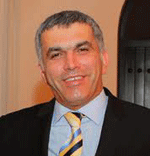Social Watch news
Published on Fri, 2012-01-20 16:10

Women working in a rice field in
Palung. (UN Photo/John Isaac)
|
Gender equity is a key element of any genuine program towards sustainable development. Analysis included on the Social Watch Report 2012 and the national contributions to the study prove, once again, the stagnation of the fight against these disparities, with disastrous consequences on the struggles against poverty, climate change and food security.
|
Published on Fri, 2012-01-20 16:06
Social Watch Report 2012, which includes citizen contributions from 66 countries and several exhaustive global analysis, will be launched in Porto Alegre, Brasil, on 26 January.
|
Published on Wed, 2012-01-18 15:46
Jordanian authorities are planning to abolish the regulation that prevents married women from getting their passports without their husband’s endorsement, a move welcomed by Jordanian Women’s Union (JWU), national focal point of Social Watch.
Civil Status and Passports Department (CSPD) director general Marwan Qteishat said the department is reviewing the 1969 Passport Law, which stipulates that a husband’s consent is needed in order for his wife to obtain a Jordanian passport, reported The Jordan Times.
|
Published on Wed, 2012-01-18 15:44

Mirjan van Reisen
|
Despite great attention paid to the Arab Spring, a ghastly silence prevails about the largest African ‘open air prison’: Eritrea is so isolated from the outside world that many inhabitants haven’t even heard about the revolutions in Libya or the uprising in Syria, wrote Mirjam van Reisen, founding director of the Europe External Policy Advisors (EEPA), a member organization of Social Watch network and based in Brussels.
|
Published on Mon, 2012-01-16 19:06

Photo: Anjo de Batalha/
Creative Commons
|
Genetically modified mosquitoes created by British company Oxitec are in fact not “sterile”, far from what their manufacturer said: their offspring have a 15 percent survival rate in the presence of the common antibiotic tetracycline, according to a confidential document obtained by three civil society groups, Third World Network, Friends of the Earth US and GeneWatch UK.
|
Published on Wed, 2012-01-11 21:16
The Observatory for the Protection of Human Rights Defenders, a joint programme of the International Federation for Human Rights (FIDH) and the World Organisation Against Torture, called on Bahraini authorities to guarantee the right to freedom of peaceful assembly and the safety of demonstrators, including that of human rights defenders, following the repression by security forces yesterday of a peaceful demonstration to call for the release of political prisoners.
|
Published on Tue, 2012-01-10 14:10

The CCPA's website shows by the cent
the income of the CEO Elite 100 and the
average workers' earning since January 1st.
|
On January 3rd at 12.00 o’clock, each one of the “CEO Elite 100” —the best paid executives of companies listed in the Toronto Stock Exchange— had already got 44,366 dollars, the amount that an average Canadian wage earner would obtain after working full-time the entire year, revealed the CCPA, one of the members of Social Watch in that country. To make the inequity even worst, only one woman is member of this privileged club
|
Published on Tue, 2012-01-10 14:08

Begining of the works for the installation
fo a APR1400 nuclear reactor near Busan
Republic of Korea. It's the same kind of
non tested device that Malaysian government
plans to buy, according to Korean activists
(Photo: KEPCO)
|
The government of Malaysia continues studying the introduction of nuclear energy, in spite of the warnings launched by 14 national civil society groups and others from Korea, Australia and specially Japan after the Fukushima tragedy. An alliance formed by groups of nearby countries, along with three based in Malaysia --the Third World Network and the Consumers Association of Penang (member of Social Watch) and the national chapter of Friends of the Earth International--, called on the Prime Minister Najib Tun Razak’s government to stop its nuclear power development plan.
|
Published on Fri, 2011-12-23 12:38

Demonstration in Rome against
cuts in social spending.
(Photo: Alessandra Raimondi
/Flickr/Creative Commons)
|
As governments all over the world, from industrialized and developing countries alike, have cut their expenditures in the last two years and prepare further savings for the next, the first casualties are the welfare programs, as contributions from grassroots organizations included in the Social Watch Report 2012 make apparent. But austerity measures have proven useless to overcome the crisis, and could even plunge the world into a recession, according to a growing number of experts and international agencies.
“Austerity fiscal policies that cut on social spending started to be implemented in debt-affected countries and are now spreading even to countries that do not suffer from debt problems or fiscal deficit,” wrote the coordinator of Social Watch, Roberto Bissio, in the overview of the report.
|
Published on Fri, 2011-12-23 12:35
A consortium of civil society networks and organizations, including Social Watch and some of its members, launched “A bottom-up approach to righting financial regulation”, an initiative aimed to build the capacity of a vast array of groups and social movements willing to promote alternative proposals based on human rights in the debate.
|
SUSCRIBE TO OUR NEWSLETTER
Submit

|










